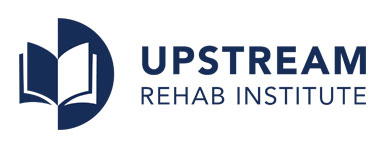The mission of the URI Hand Therapy Fellowship Program is to inspire and empower the Occupational or Physical Therapist with advanced knowledge, clinical reasoning and practice skills necessary to develop and implement a plan of care as a passionate, evidence-based clinical specialist in the field of Hand and Upper Extremity Rehabilitation. Ultimately, this clinician would earn the designation of Certified Hand Therapist (CHT).
Description
The URI Hand Therapy Fellowship is a 12-month structured didactic and clinical mentoring program designed to empower the Occupational or Physical Therapist with the advanced knowledge, clinical reasoning and practice skills necessary for successful practice in the hand and upper limb rehabilitation specialty. The program provides both a strong foundation and ultimately aims to prepare a clinician to earn the designation of a Certified Hand Therapist (CHT).
Program Goals
- Provide a Fellowship program with a faculty-led curriculum that establishes advanced competencies consistent with the description of Hand and Upper Limb rehabilitation specialty practice.
- Deliver high quality evidence-based Hand Therapy specialty education in a blended environment that prepares the clinician to become a Hand and Upper Extremity specialist and ultimately become a Certified Hand Therapist.
- Provide consistent program delivery to Fellows across all clinical sites.
- Provide a superior mentorship component that promotes clinical and professional development.
- Provide opportunities for fellows to be active consumers and potentially contributors of scientific literature.
- Growth of clinicians that exhibit the highest standards of professionalism.
Program Director
Jennifer DeYoung, MOT, OTR/L, CHT
Location
Locations are available around the country pending mentor availability with four required live two-day weekend labs based in Atlanta, GA.
Program Structure & Plan of Study
Each fellow provides patient care at one of URI partners’ leading outpatient facilities.
The program consists of blended learning content including the following:
Advanced Practice Concepts
Topics include an introduction to clinical reasoning, principles of conducting orthopedic initial evaluations, and establishing plans of care (including medical and UQ screening).
Hand and Upper Extremity Foundations and Interventions
This course reviews upper quarter anatomy, biomechanics, and assessments; orthotic interventions; physical agent modalities; tissue healing principles; pain neuroscience; manual therapy; neurodynamics; exercise prescription; imaging; and more.
Management of Upper Extremity Conditions I
This course reviews common conditions of the shoulder, elbow, wrist, and hand.
Management of Upper Extremity Conditions II
This course reviews management of more complex conditions including wound, skin, and soft tissue conditions, flexor and extensor tendon injuries, peripheral nerve injuries, tendon and nerve transfers/reconstruction, and arthropathies/autoimmune disorders.
Management of Upper Extremity Special Populations
This course addresses the nature and treatment of upper extremity disorders in special populations, including pain conditions, complex traumatic conditions, psychosocial adjustment, industrial injuries, and more. Scholarly projects are completed. Finally, studies will culminate in a mock CHT-style exam.
Four live, two-day Weekend Labs in Upper Quarter Management/Manual Therapy and Orthosis Fabrication/Management
- This content coordinates with didactic material covered in the program
Manual Therapy labs:
- Practical assessment skills emphasize effectively screening the cervicothoracic region and upper quarter, and treating the shoulder complex through the hand.
- Hands-on joint and soft tissue mobilization techniques.
Orthosis labs:
- Biomechanical and fitting principles, material selection, assessment principles, and clinical reasoning necessary to fabricate custom orthoses.
- Fabrication of 15+ common custom orthoses.
Capstone Projects
- Scholarly Project: Development and presentation of an educational webinar/case presentation or educational webinar promoting a clinical topic as approved by the Program Director.
- Mock CHT Exam: Fellow will take a series of online practice hand therapy examinations, and a 200-question Mock CHT Exam at the end of the program.
- ***Certified Hand Therapist (CHT) Examination: when eligible (three years of licensed OT/PT practice and 4,000 practice hours treating a hand & UE caseload).
Mentorship
All participants receive 150 hours of mentorship with a CHT (up to 50 hours may be completed via virtual mentoring)
Course Descriptions
Outcomes
URI is proud that 92% of our qualified Hand Therapy Fellowship graduates sitting for the Certified Hand Therapy Exam have passed the exam on their first attempt compared to the national pass rate of 54%.
Apply Now
For years I had wanted to specialize in hand therapy, but I just couldn’t bridge the gap as a general orthopedic physical therapist. The URI Hand Fellowship equipped me with quality mentorship, learning tracks, and valuable orthotic workshops. Becoming a Certified Hand Therapist has enhanced my career in so many ways, and I couldn’t have done it without this program. Thank you URI Hand Fellowship!
– James L
TestimonialsFor more information, please contact us at HandFellowship@upstreamrehabinstitute.com
